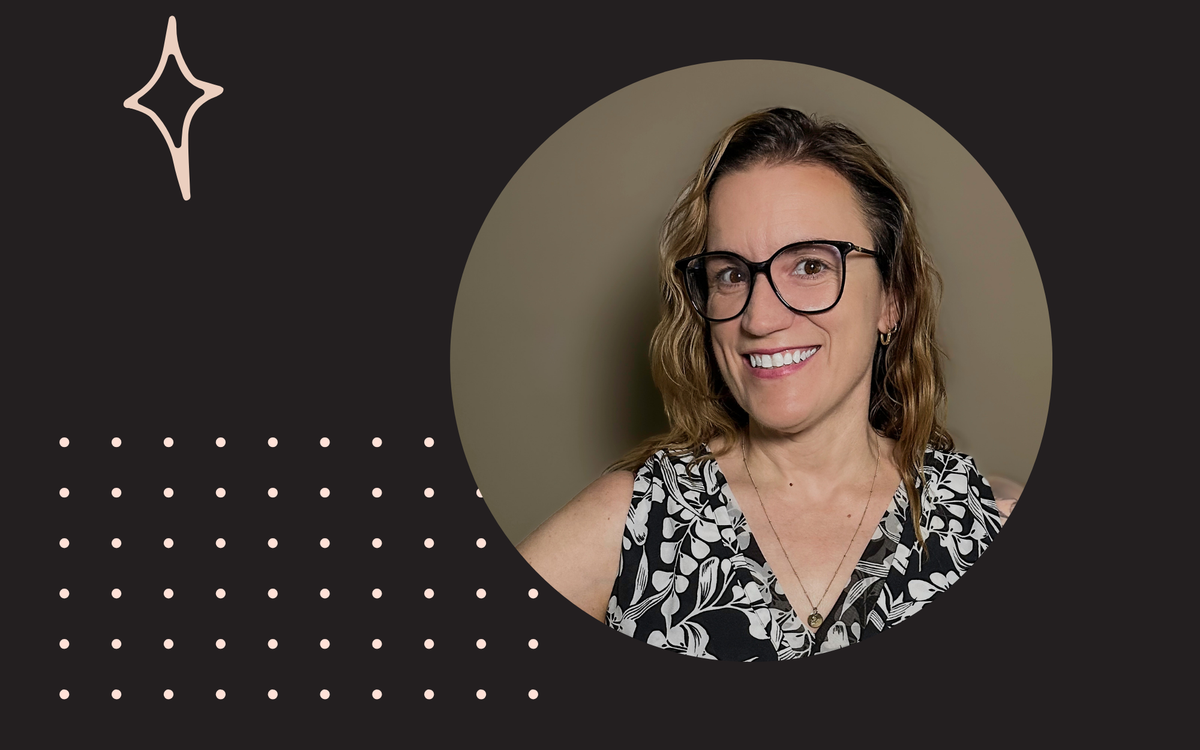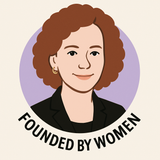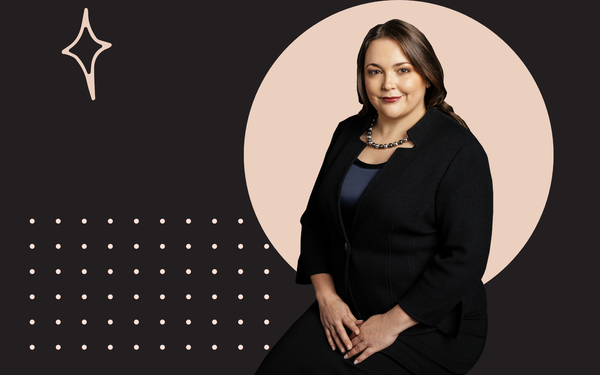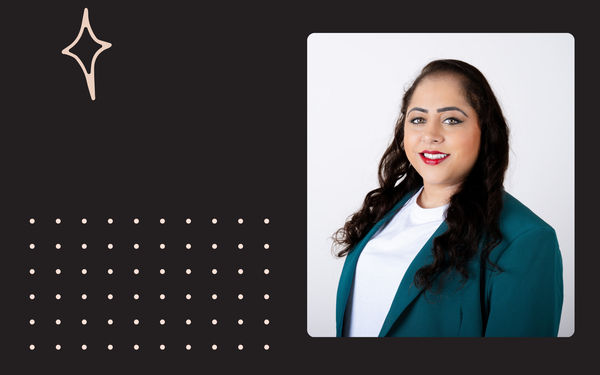Holding Space in the Darkness: Dr. Nicole Law on Building Trust Through Vulnerability and Community Care

In a world where mental health care often prioritizes efficiency over connection, Dr. Nicole Law has built her practice on a different foundation: the belief that everyone has a story worth holding safely, and that healing happens in the countless small moments of showing up with a fully charged flashlight.
Dr. Nicole Law's journey to founding Aloe Integrative Psychology Group began with a powerful lesson learned in her family's small-town Michigan restaurant. When a fire swept through downtown but spared their establishment, young Nicole watched her mother make coffee and muffins for the exhausted firefighters. "I'm not a firefighter," her mother said. "I don't run into burning buildings and save people. I make coffee and muffins... Everyone has a job and everyone's job matters."
This philosophy of service—of finding your unique way to care for others—now guides Dr. Law's approach to mental health care. As a licensed psychologist specializing in perinatal loss, fertility challenges, and supporting transgender youth and their families, she has built a practice that prioritizes quality over quantity, vulnerability over perfection, and community connection over individual achievement.
Aloe Integrative Psychology Group, which Dr. Law founded and leads, aims to provide the highest level of care for those in the mental health sphere while empowering clinicians to model emotional wellness. Her approach is truly integrative—collaborating with fertility clinics, medical professionals, holistic practitioners, and even spiritual advisors when they're important to a client's cultural worldview.
In our conversation, Dr. Law shares how COVID taught her the power of leading with vulnerability, why she keeps backup batteries for her metaphorical flashlight, and how mental health care must address not just individual healing but systemic change. Her practice serves as a model for what's possible when we prioritize the humanity of both therapists and clients, creating space for fresh fruit in the waiting room and fresh perspectives in the therapy room.
1. As a reproductive health psychologist, your practice focuses on some unique populations such as those dealing with perinatal loss, fertility challenges, and transgender youth. How do you approach building trust with clients during such vulnerable periods?
I think I’ve always felt a connection to those who felt some what invisible and overlooked. But each specialty connects to me personally in some way.
Years ago my parents had a restaurant in a small town in Michigan. One day there was a fire in the downtown strip but their restaurant was spared. When I found out my mom was making coffee and muffins I thought she was in shock. Who would come eat in the middle of a fire? What she said next shaped much of the way I see my work. She said “I’m not a fire fighter. I don’t run into burning buildings and save people. I make coffee and muffins. And I think that firefighters that have been up all night working could use some coffee and muffins. Everyone has a job and everyone’s job matters.” I think about that moment often.
Ever since I was young, people would approach me and share intimate details of their stories. Each person that enters my office has a story and each story is part of our collective history. I hold their stories and keep them safe. During my dissertation, I set out to do a quantitative study, but I got more information from the question “is there anything else you would like to share about your experience of pregnancy loss” than the rest of my data collection. Folks needed a place to open up where they could feel seen and heard.
During COVID I learned sitting in my own vulnerability showed many of them they could be vulnerable without losing everything that made them strong. It was a “you go first” moment. I make mistakes, I misspeak and I correct myself with kindness and give them the grace they deserve without guilt. In a field dominated by western ideals such as psychoanalysis and behaviorism that present the therapist as a blank slate, this is a somewhat radical idea. In many traditional approaches to therapy, like psychoanalysis or behaviorism, therapists are taught to stay neutral and not share much of themselves. But in feminist and relational-cultural therapy, the belief is that healing happens through the connection between therapist and client. And for that connection to be felt by the clients, I have to bring my full, authentic self into the room.
These vulnerable times bring up complex feelings that have clients doubting and criticizing themselves. Fertility clients question every water glass they have used, every negative thought they have had about a child or having a child. They feel guilt after conception if things get hard. They need to know that all their feelings are welcome.
I have quite a few conservative parents of transgender youth that have conflicting feelings about their child’s identity. They worry I will judge them or that I will try and convince them to see things my way. I see them as parents that love their children and are worried about their safety and futures. When my work starts from that premise, we naturally trust one another. I hold the flashlight as we walk through the darkest parts of their life. I make sure they know I will not leave them alone in the darkness by showing up week after week with a fully charged light. I provide data and information when it is needed or wanted, boundaries that keep everyone safe, and unconditional positive regard for the entire family. That is not always easy when you are working with a family that doesn’t see eye to eye. When it comes to building trust, there is no substitute for time, consistency, and simply showing up.
2. Aloe Integrative Psychology Group emphasizes quality over quantity in client care. How does this philosophy shape your day-to-day practice, and what does "integrative" mean in your approach to psychology?
This philosophy shapes our practice in several ways. We do our best to match clients and therapists that will be the best fit for their needs and goals. In my experience, this provides a more positive experience for all and better outcomes for the clients.
We build relationships with other providers in our area. If a new client is not a good fit for our providers, we can refer them to someone who can help. By staying smaller and focusing on quality over quantity, we help reduce the risk of therapist burn out (a common issue in our field). Our therapists have extensive say in their caseload. By empowering the therapists to consciously care for their cases and making it easy for them to decline cases when they feel their caseload is full, I find that sick days are greatly reduced, and therapist satisfaction is higher. The healthier the therapist, the more available they are to care for their clients. Our therapists all have a mixed load of clients that include regular clients along with sliding scale and/or pro bono clients. They are encouraged to take clients from populations/conditions that they feel passionate about helping as a means to giving back to the community.
As far as the term integrative goes, we have quite a few different modalities that our therapists utilize. Trauma focused, existential-humanistic, EMDR, DBT, to name a few. In addition to that, we focus on collaborating with those in our clients lives who they find integral to their mental health. I’ve worked with fertility clinics, psychiatrists, primary care physicians, holistic practitioners, chiropractors, neurologists, endocrinologists, cardiologists, surgeons, religious workers, and even some reiki practitioners and astrologists. If it is important to the client, then we work with their cultural, medical, and psychosocial worldview to better understand what they client needs to be successful in their goals. For example we have one therapist who may use tarot as a projective tool in therapy for clients who have that as a part of their sociocultural paradigm. Other examples might be working within the framework of an individuals religion to help them identify activities that might parallel therapeutic interventions. The deepest levels of empathy are only reached when you truly step into a clients world and ask “what is going to help them reach their goals.”
3. You've transitioned from working in traditional mental health settings to founding your own practice while teaching and serving on professional boards. What has this journey taught you about leadership in the mental health field?
Ethics have always been important to me. I surround myself with people who challenge me in the way. My leadership style is one of service. I serve the people who are trusting me with the responsibility to lead, whether it is for their education, their mental health, or as their employer. A friend once told me the best CEOs surround themselves with others who are the best at their work. I try to surround myself with great thinkers who challenge me on questions of ethics, equality, and justice. I’m trying to help make the world better for as many people as I can. In my practice I try to do that for my therapists so they can help our clients.
I have learned that mental health is not an individual issue, it’s a systemic one. We are social creatures. We did not get to the top of the food chain because we could hand wrestle a lion. We got here by working together in families and communities. We need to take care of each other even when we disagree on things. I try to provide my therapists benefits and do my best to make sure they have time for self care. When we say family and personal health come first, we prioritize those in our team. We cannot encourage our clients to make changes in their lives we would not otherwise make in our own.
We provide fresh fruit whenever possible in the waiting area. Who knows when the last time some of the kids coming to our office had fresh fruit? We partner with other organizations in the community for volunteer days that are not related directly to mental health. We are not just a business, we are a part of our community. After all, if we want people to improve their mental health and well being, we need to stop putting them back into the same broken system that created the problem. In therapy we know that change does not come in big, dramatic moments. Rather it happens in millions of tiny moments built up over weeks, months, and years. That is how the change in our systems and communities is going to happen. With each of us out in the community, in millions of tiny moments built up over weeks, months, and years. In my sessions with clients I hold hope that those moments will lead to meaningful change. My growth edge is to hold hope for our communities in times where everything feels lost, that those moments will lead to great and lasting change. After all. The most important job I have ever had is to remember to bring backup batteries. The community needs a light too.
Are you a woman leader with an inspiring journey to tell? Founded by Women is on a mission to elevate and amplify the voices of women making an impact.
If you're breaking barriers, driving change, or paving the way for others, we’d love to feature your story. Get in touch with us today!
👉 hi@foundedbywomen.org


